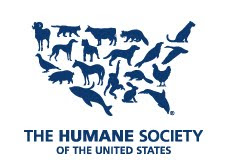January 26, 2010
Haiti Update - Jan. 26
 Today, the team met with Christian Veterinary Mission (CVM) to exchange ideas. CVM has a long history of working in Haiti, knows the culture well, and shared useful information with us, including the fact that before the disaster, the Haitian government had been working to vaccinate the country's approximately 500,000 dogs and cats through free community clinics. The government would like to continue this project in the countryside and unaffected areas of the country as soon as possible; this is something we are hoping to help with.
Today, the team met with Christian Veterinary Mission (CVM) to exchange ideas. CVM has a long history of working in Haiti, knows the culture well, and shared useful information with us, including the fact that before the disaster, the Haitian government had been working to vaccinate the country's approximately 500,000 dogs and cats through free community clinics. The government would like to continue this project in the countryside and unaffected areas of the country as soon as possible; this is something we are hoping to help with.Finally, a large part of the city population is now making its way to the countryside, with horses and donkeys being used as transport. We are concerned these animals are possibly being overworked; our team will explore this issue further.
Tomorrow, HSI and CVM have a joint meeting scheduled with the Ministry of Agriculture, the ministry with responsibility for all animals in Haiti. There, we will discuss what the ministry believes we can do to assist further now and in the long term.
Please, DONATE here: |  |  |
HSI AND HSUS in Haiti: Action, Assessment, Answers
January 26, 2010
 Humane Society International's team on the ground in Haiti continues its work of helping animals in distress, coordinating response with other relief agencies, and setting the stage for the second wave of HSI response. Additional HSI and HSUS responders will reach Haiti later this week, through the Dominican Republic, to reinforce our mission and replace members of the first team, which arrived in Haiti on Thursday, January 21. HSI staff members are also on the ground in the Dominican Republic marshaling vehicles and supplies for deployment.
Humane Society International's team on the ground in Haiti continues its work of helping animals in distress, coordinating response with other relief agencies, and setting the stage for the second wave of HSI response. Additional HSI and HSUS responders will reach Haiti later this week, through the Dominican Republic, to reinforce our mission and replace members of the first team, which arrived in Haiti on Thursday, January 21. HSI staff members are also on the ground in the Dominican Republic marshaling vehicles and supplies for deployment.The early presence of HSI responders and their ability to gather information from local and regional partners has made it possible for HSI to adjust its plan for short and near-term response, to meet the realities of a situation in which the pressing urgency of human needs continues to shape the reaction of the world community to the crisis.
The team has noticed a significant rise in evacuation of citizens from Port-au-Prince to the surrounding countryside, with horses and donkeys being used to transport people and their belongings. The overloading and overworking of such animals has become an immediate problem, and HSI will make their welfare a high priority in the days ahead, for these equines are playing an essential role in the lives of ordinary Haitians trying to save themselves and their families.
The team has also forged a friendly relationship with personnel from the Christian Veterinary Mission (CVM), which has a longstanding presence in Haiti and other developing nations. Together with representatives from CVM, the HSI team will confer with officials of Haiti's Ministry of Agriculture about the most urgent animal welfare priorities stemming from the crisis.
HSI is also making an assessment about financial and practical support for the immediate revitalization of a successful vaccination program that Haiti had been running with guidance from CVM in recent years. More than 101,000 animals in Port-au-Prince, accounting for perhaps two-thirds of its estimated 150,000 dog and cat population, have been vaccinated through free rabies prevention clinics around the city. Those familiar with Haiti place the nation's dog and cat population at approximately 500,000 and the case for expanding the program into other parts of the country over the long term is a strong one.
In charting a proper response to the situation of dogs and cats affected by the Haitian crisis, the HSI team is incorporating the experience of residents, including staff members of CVM. Petkeeping in Haiti looks quite different from that of the United States. In Port-au-Prince and elsewhere, dog are "loosely owned," and mainly used for security--tied up in the day time and set loose at night to provide household protection. Although there are a few dozen veterinarians in Haiti, mostly Haitian or Cuban citizens, and perhaps 1000 veterinary technicians, cats and dogs receive very little veterinary care.
HSI responders have also cooperated with emergency personnel working to help the thousands of human victims of the earthquake, as they attempt to provide essential, life-saving support to the wounded, the hungry, and the displaced. Wherever possible, our team has assisted doctors and other medical professionals on the ground, sharing supplies and intelligence concerning the human needs in areas of the country they have visited. In a crisis in which human and animal wants remain acute, such collaboration is essential to the overall success of the world’s response to the needs of a stricken nation.



No comments:
Post a Comment